|
Delores F. Rauscher
Overview
Main Ideas
Chicago's corporate business growth at the end of the nineteenth century and the beginning of the twentieth increased the need for office workers. Young women of some means and education began to fill new positions primarily as stenographers and typists. As they moved away from home and out into the work-a-day world, they struggled with their identity, finding both fulfillment and discomfort in their new roles. Some felt "out of [their] element and sphere" as they moved about in public places and worked in close proximity with businessmen in clerical offices.
Connection with the Curriculum
This lesson emphasizes changes in cultural traditions and in urban environments with regard to young women. Students are asked to critically examine and analyze those changes, make inferences, and synthesize the knowledge they gain. The lesson may be appropriate for the following Illinois Learning Standards: 14. F. 4a; 14. F.5; 16. A.3a; 16. A.3b; 16. A.3c; 16. A.5a; 18. A.4; 18. A.5; 18. B.5.
Teaching Level
Grades 9-12
Grades 7-8, for some lesson activities,
with modification
Materials for Each Student
• A copy of the narrative portion of the article
• A copy of each activity sheet
• Access to a computer: World Wide Web and Excel spreadsheet program
Objectives for Each Student
• Define and identify biases and stereotyping
• Examine ways in which economic and technological changes affect cultural constructions and the use of urban spaces
• Use models for interpreting primary source documents
• Organize and make inferences about statistical data
• Collect and analyze data
• Propose solutions to problems involving cultural stereotypes and barriers
• Draw conclusions and write about the lesson's main ideas
SUGGESSTIONS FOR
TEACHING THE LESSON
|
Opening the Lesson
This lesson focuses on the ways in which young working women prompted changes in both public and private spaces at the end of the nineteenth century and beginning of the twentieth. It examines how the occupations were affected as the occupations became identified as women's work. It examines how the occupations affected the women as they struggled to adjust to the office setting and the public spaces traditionally thought to be only the male realm. In addition, the lesson looks at how the women's presence in office buildings and skyscrapers and the women's clerical talents brought under scrutiny certain gender biases and stereotypes with regard to women working outside the home.
Developing the Lesson
The primary source activities in Activity 1 may be used selectively or as a whole. The teacher should be sure that students understand the terms of this lesson. The use of the phrase "public spaces" is common in historical study, but its meaning may baffle students. Explain that public spaces are city streets, restaurants, coffee houses, saloons, parks, and shopping areas—any space reserved for general public use. Explain, too, that women at that time, young women especially, were generally not present in such spaces without an escort, usually a man.
The terms bias and stereotyping are defined in Activity 1. Students may find it difficult to understand the terms. You may want to explain the Jane Addams example further by saying that in this example Addams stereotypes all young women with her belief that they cannot be trusted to follow socially acceptable behavior in the office setting. In addition, Addams stereotypes older women with her belief that they will set good examples for the younger women. You might add that a double standard existed with regard to acceptable behavior for males and females. Young males could freely engage in certain activities and behaviors that would result in an arrest for young females. For example, in the early part of the twentieth century, young women were sometimes arrested and put into reformatories—sometimes for up to two years—if they
29
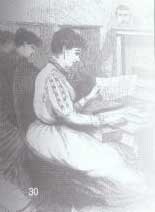
|
were caught hanging around saloons or pool halls unescorted (see Mary Odem, Delinquent Daughters, or Regina Kunzel, Fallen Women, Problem Girls for examples).
A note on the names used in this lesson: Isabel Wallace and Effie Jones are called Isabel and Effie in this lesson, rather than Miss Wallace or Miss Jones, as would have been their titles of address during their own time. The intent here is to have the students better relate to the two young women since first-name-basis is widely accepted in our own time, especially among young people. You may wish to explain, however, that the two women would have been formally addressed in their own time.
Note that the study of Chicago office girls is considered a snapshot of female clerical workers in most urban areas at the time.
Above all, remember that the lesson activities are meant to prompt discussion and critical thinking and that a wide range of answers is acceptable.
Activity 1's reading matrixes are meant to foster reading comprehension and critical thinking skills. Depending on the reading level of your students, you may wish to read the documents together as a class and fill in the matrix as you read as a class. You may instead wish to have the students work in small groups to accomplish the task. Or you may have each student work individually, doing the matrixes as homework. The goals and values of the women are fairly evident based upon what they say. For example, Isabel wants to return to her home; she wants to take care of her mother; she does not consider working in an office an appropriate behavior for women. She finds the office setting stifling, not liberating. She values family and traditional roles for women. Her biases are more covert: She does not believe public spaces are suitable places for women—women need the protection of home and family. Effie finds the office world and public spaces liberating and exciting. She strives to excel at her work; she values the freedom she gets from working on her own in Chicago. But she has biases with regard to women's place and feminine character that are evident in her discussions of guiding her assistant and so on. You may wish to point out that personality and upbringing probably played some role in their goals and values. In addition, Isabel is a transcriber by hand—a tedious job that many people found difficult to endure for long—while Effie engaged in more intellectually stimulating work, as evidenced by her descriptions of her work in the law office. (Notice that in the last line of Document 3, Isabel says that if she has a "change," she would gladly do this work again. Did she mean a change in type of work she has been doing or was the word "change" meant to be the word "chance?" We cannot be sure.)
Post-reading questions are designed to help students understand that the historian must consider the intent of the writer with regard to her audience in order to assess the meaning of a document. Isabel might be trying to convince her mother to call her back home. Effie's upbeat optimism might be designed to convince her parents that she is fully capable of being off on her own in the big city.
The second reading matrix requires students to find instances of physical and intellectual stereotyping with regard to male and female abilities. Be sure to explain "natural" abilities so that students understand that males and females were thought to have been born with certain talents and that certain types of work would be innately easier for one sex than the other. Some examples of possible answers might be that Document 9 brings out a bias against educating women for a variety of professions. Document 10 shows that women were thought too delicate of mind for courtroom reporting, a weakness that would lead them to do the things they would hear about in court cases. Because this idea was so prevalent in the culture of the time, a "respectable" woman's presence in the courtroom might alter a witness's testimony, as explained in Document 12. Note that in a couple of documents, as well as in the narrative portion of the article, women are explained as naturally suited for typing because they also have talents at piano. Overall, students should be able to find numerous examples for this matrix. The post-reading questions are meant to prompt students think critically about the intent of the document's authors. The writer of Document 13 seems to be poking fun with an analogy of typewriter girls' appearances and the typewriting machine. But, again, we cannot be sure, because we do not have enough evidence to make a judgement.
Group 3 post-reading questions show how the postcard's stereotype of office girls as flirts and vamps is challenged in the fictional accounts like that of the exemplary behavior of Miss Gale, who was too innocent even to recognize Mr. Denham's intent of marriage. "Good girl gets the gold" seems to be the moral of this often-repeated story formula.
Activity 2 requires students to do an interview in order to make comparisons between the past and the present. As the directions point out, the class will have to come to agreement, based upon the information in the article and the documents, and then decide on the yes and no answers for the "Female Office Workers, 1870 to 1930" column blocks. Each student will surely know of at least one woman who works in an office setting. Students should be cautioned, however, that the results they get from these comparisons cannot be taken to be fully reliable, since a larger and more specific study would need to
|
30
|
be done to yield more reliable results. Instead the exercise offers students a chance to learn how data studies aid historical analysis.
Activity 3 should be completely self-explanatory. The steps for plotting the information on Excel are given in case some students have not had experience with that program. It should be a fun diversion from regular history class activities. Note that step 12 says to discuss the findings. Students may wish to refer to the interviewees' explanations for the discussion.
Activity 4 is a bit devious. Copy only questions 1 through 8 on the blackboard, overhead projector, or on individual sheets. Students should work in groups of three or four to devise answers to the first eight questions. The first eight questions—with the possible exception of one—are leading questions. They are designed to bring out the gender biases of the students. After the students have completed answering the questions, present the class with questions nine and ten.
Concluding the Lesson
Discuss briefly and list on the blackboard what students know about women living in the Progressive era of American history. Ask students in what ways does Effie's letter of 1924 (Document 8) show that she was a woman of the Progressive era? How does her letter show that she believed some of the things that Jane Addam's quote reveals (Activity 1)? What do her politics seem to be? Ask students what they are surprised to learn about women's role and place in society? For instance, did the attitudes and beliefs of the speaker in Document 12 surprise them? Did Isabel's concern for her mother's welfare surprise them? Ask students what they think the published fiction (postcard—Document 17 and story—Document 16) revealed about the times and about the role of women. What purpose did fiction seem to serve? Finally, ask the students, "If you lived during this period, what would you change with regard to gender roles? What would you keep the same?"
Extending the Lesson
There are numerous pieces of fiction— the short stories "The Yellow Wallpaper" by Charlotte Perkins Oilman and "A Jury of Her Peers" by Susan Glaspell, for example— that deal with gender biases and stereotypes. Students may listen to Glaspell's story performed as a play at the Public Media Foundation's web site at http://www.scribblingwomen.org/sbjuryfeature.htm
You may wish to work with the language arts teachers to correlate this lesson with a study of some of the fiction.
For Activity 4, to facilitate further discussion in answering question ten, ask students to consider whether gender jokes reinforce gender stereotypes—"the woman driver," the "dingy blonde woman," etc. Ask them if they can think of any TV shows, movies, or plays that poke fun at gender stereotypes. If students are familiar with the popular Broadway play The Producers or with the old TV show "All in the Family," have them discuss whether these or other entertainment media are effective either in challenging gender stereotypes or in reinforcing them. Have the class watch snippets of that TV show or others to pick out stereotyping or biases. Although it is little known and read, Sinclair Lewis's novel The Job deals with a young woman's experience in the urban and office world of this time period.
Assessing the Lesson
Use Activity 5 for assessment. This activity is meant to offer students a chance to role-play and thereby demonstrate the knowledge they have gained in this lesson about women office workers during the span of years 1870 to 1930. The activity calls for students to employ comprehension through the recall of facts, to analyze information from the narrative portion of the article and the documents, and to synthesize their knowledge into a creative writing activity.
Grade the students according to the amount of the information they convey. In addition, their letters should show their understanding of not only the physical aspects of their work but also the assumptions people made at the time about the role of working women in society, assumptions held by both the letter-writer and her readers.
If males express discontent with playing the role of a young woman office worker, consider asking them to assume the role of a male who is working in an office where one or more females have begun working. In his letters to his relatives, he might then relate his own duties on the job, his apprehensions, and his approval or disapproval of women in the office setting and in public spaces.
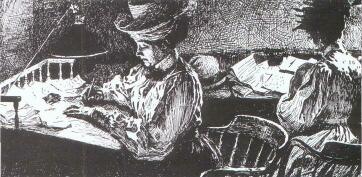
|
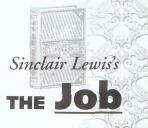
|
31

Bias—Everyone has biases, even historians. Biases influence the decisions we make and the conclusions we come to. Bias is our tendency to assume something is true without proof. Such assumptions influence the way we tend to think. Our biases are often so subtle that we do not even recognize that we have them. Biased thinking projected onto a group is called "stereotyping." Stereotypes are oversimplified assumptions accepted without proof.
The article shows examples of bias and stereotype with regard to women office workers. For instance, the article quotes the reformer Jane Addams commenting on young women in the office setting. A young woman in an office setting was, she said, "without the wholesome restraint afforded her by the companionship of other working women and her isolation in itself constitutes a danger." The danger Addams fears is that young women will fall into a "vicious life," meaning that they will engage in immoral or socially unacceptable behavior. Addams seems to believe that neither the young women, nor the men they work with, will control their own behavior so that they follow what was at that time thought to be acceptable behavior for men and women. Essentially, Addams is saying that young women therefore need to be policed by older, experienced women in order to keep young women from engaging in unacceptable behavior.
READING MATRIX 1: As you read the groups of letters below, fill in the boxes in this matrix with phrases and words that describe each of the women letter-writers for each category. You will sometimes have to make inferences based on what they say.
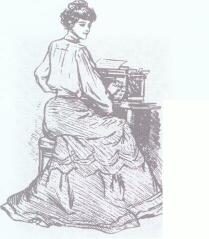
". . . The girl is without the wholesome restraint afforded by the companionship of other working women and her isolation in itself constitutes a danger."
32

|
| HER GOALS
| HER VALUES
| HER BIASES |
Isabel Wallace
| | |
| |
Effie Jones
| | |
|
33

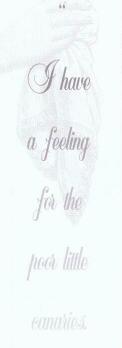
|
(Spelling and punctuation are left as in original.)
Isabel Wallace*-- In 1885, Isabel Wallace got a temporary position as a copyist in the Chicago pension office where her Uncle Martin worked. Her letters indicate that she took the position because her family needed money, but that she did not take it for self-satisfaction. She wrote to her mother nearly every day, often complaining of her discontent with the tedious work. Isabel's job required her to transcribe by hand. The original letters are handwritten. She probably had no typing skills.
The article above begins with a quote from Isabel in which she says she "feels out of her element" and "less womanly and somehow as if I was doing something I didn't approve of." Nearly all of her daily letters home express the same sentiments. Here are a select few:
Document 1
|
Nov. 24th (1885)
Dear Mama
... I never did anything that was so distasteful to me in my life. When you talk about my doing it all the winter, it seems almost unindurable, I honestly am afraid I haven't the self denial. When I don't have to. I guess I'm spoiled. I just feel as if I was imprisoned. I have a feeling for the poor little canaries. I don't suppose any one has an idea how I dislike this work. It isn't that it's hard, it's very easy, only so monotonous, but it's the confinement. I don't ache but just feel as if I should fly.... The clock seems to go backward. Time never seemed to drag so. I suppose if I felt there was any gain especial, it wouldn't be so hard, but I just feel as if I was wasting my time and torturing myself. I suppose I'll have to grin out the three weeks. Uncle Martin nor any one hasn't an idea how I dislike the work. But I tell you I'll appreciate my freedom when I do get home and the free air. It is dark when I get out and it seems so strange to be roaming around alone. Tonight the car was so crowded didn't get inside the 1st car coming up at all. I don't feel as if I was myself at all, but some bold unwomanly creature. I was a quarter of an hour late this morning, which of course won't do,... I did more work today than yesterday. Filled out about 150 vouchers yesterday and 190 or over today that means write the name 3 times and date once then a very large number (in the thousands) 6 times the money amount and your initials. Those numbers have to be accurate and names spelt perfectly correctly, and such funny names some of them are....
Your loving daughter
|
*Isabel Wallace letters courtesy of the Illinois State Historical Library, Springfield, Illinois:
The Wallace-Dickey Family Papers.
|
|

Document 2
|
1885
Thanksgiving day
Dear Mama
... I'll try not to worry about you. But you see you are all I have in the world, so the thoughts of your being lonesome, of anything happening to you, would be taking all there is worth living from me. I feel rested and more comfortable today—I didn't get so tired yesterday, but I don't enjoy the work any better. I feel as if I was a prisoner when I am down there, you see it's like taking all my daylight.... I'll endeavor to stick it out the 3 weeks and not let them know here how I dislike it.
But I don't want to do it any longer without I could see more satisfactory results from it than I do now. Leaving my feelings out of the question, do you see enough good resulting to warrant the doing it longer? ... I don't like the idea of your being there alone, you'd better either come up here, or have some one with you or I won't be easy at all, in fact feel guilty all the time. I could stand to continue the work I guess, after the 3 week's temporary, but honestly do you think we'd make any money by it? That's where the point lies....
|
Document 3
|
Chicago Dec 27 " 85
Sunday Ev'g
My dear Mama
My work stopped last night. Everybody said they were sorry to see me go and awful kind and nice. I think I have made friends there anyway and Mrs Mulligan was very profuse in saying the head clerk did better than ordinary, etc, etc, but there is no promise of work. Uncle Martin is going to see her and see if she can promise anything definitely. I feel as if I was myself again, and have a sense of freedom, that is delightful, but if I have a change, will gladly do it again for the sake of money....
Your loving daughter Isabel
|
|
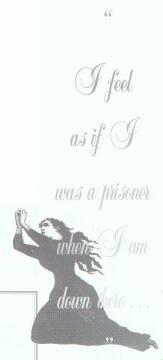
|

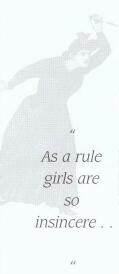
|
Effie Jones* —Effie Jones left her home in Iowa to go to work in Chicago in 1890. We do not know her age at that time, but she was probably in her late teens or early twenties. After a course in typewriting and stenography, she got her first position with an import company, beginning at $6 a week. She moved on to other positions, one as stenographer for a law office. She lived for a time in a boardinghouse. In these excerpts from her letters to family, she describes her early career (1890s) and her later career (1920s). The excerpts below come from much longer letters. The first letter quoted below was written in 1889, before Effie went to Chicago and before she took the stenographer and typewriting course. Effie wrote it in longhand. It is typed here for easy reading.
Document 4
|
Farley, 10-11-89
My Dear Father,
I arrived here only yesterday and found your letter awaiting me.... I saw a good many "wants" in the St. Paul papers for stenographers and typewriters. I could have procured a position if I had known enough. Oh, dear, isn't it an awful pity I don't know a little bit more? Say, Papa, just before I went up to St. Paul, a gentleman here in Farley was so foolish as to ask me if I wouldn't marry him! I was kind of mad at him for daring to, as I had always avoided him. Hadn't even flirted a bit with him. He was always bothering the life out of me, asking me to go places with him, and I never would accept his invitation when I could help it. I guess he is a good sort of fellow. He is the I. C. telegraph operator. . . . What in the world would I want to get married for, I wonder? ... But, really, I had never even thought of such an event happening as that any of the men I know would think of marrying me for the thought never entered my head in connection with them. And—why should it? I have about come to the conclusion, lately, that boys are a nusence, because most of them are not content to be friends. When they are, though, they make better ones than girls do. As a rule, the girls are so insincere, you can never tell whether they mean what they say or not, but boys are different. Now, today I noticed that the girls that I am most intimate with, would come in and kiss me, and ask a few questions, say they were glad to see me, and were, really entirely indifferent as to whether I ever came back or not. But about 4 or 5 of the boys were really glad to see me again, and put more warmth into a hand shake, than there were in a dozen of the girls kisses. I wonder what makes women kiss each other so much. I never think of kissing just every girl I know, when I don't like some of them at all, but they will just more than run up and kiss a girl, and the minute she turns away, will tell how "they just hate her, she thinks she is so smart," ect. ect....
Effie
|
*Effie Jones letters courtesy of the Iowa State Historical Society, Iowa City, Iowa: Effie Jones Brown.
|

Document 5
|
Chicago, Aug. 11, 1890
Dr. W. G. Jones
Williamsburgh, Iowa.
Dear Papa:-
... I am substituting, while the regular stenographer is away on his vacation. I began work Saturday morning, and will stay here two weeks anyway, and then I can either go back to college again, or take a position if I can get one, and I don't think I will have much trouble... About my work here, ... So far I have made only one mistake, and that was in a proper name... .This business is all new to me, and one-half of the letters they dictate are like Greek to me, and I can't tell for the life of me if I have them right or not.... Saturday I had to work to understand what they said as they would dictate with a cigar in their mouth, and 'mumbled so.'... They spell almost all the names out for me, and have me write them in long hand, and it is a very good plan, as no one ought to be expected to spell them correctly who is not acquainted with them. The names of the French towns and the names of steamers, especially, are hard....
Your loving daughter
Effie
|
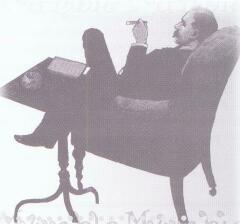
37


|
Document 6
|
Chicago 9/21/92
Dear Mamma:-
... For the last week I have been getting Mecartney ready for the Supreme Court, two cases, and have spent two and three days over at the Law Institute looking up law in a presumption case. I had to hunt in English records, for there have been very few cases like it in this country, and found some as far back as Elizabeth's time, and plenty of them in the Georges. It is interesting work, but I could not stop for letters and small papers, so have another girl here to help me out on them.
You asked me, I believe, about hats. Well, as far as I can see, the hats this year are the craziest, brightest, "loudest" ones it has ever been my fortune to meet. Even the black ones are so covered with jet and rubber snakes, dragons, bugs, etc, that they look giddy. Miss. S. is getting me a brilliant red felt walking hat, trimmed in velvet same shade, but I could hardly advise you to get one like it. I think an "English walking hat" trimmed in stiff loops of ribbon and velvet would be about the thing. For traveling hat, take off the trimming off that turban of yours, and have the felt cleaned, and trimmed with tall loops of velvet, wired to stand straight, and unhemmed. I talked with Miss. S. about the hats, and she says that if you could get scarlet or yellow tips - three of them -and put on the front of the girls black beaver hats, they would be as stylish as anything you could possibly get them.... Romance and Chicago business life do not go hand in hand, I find, and I am naturally inclined to be too impractical, anyway. Yes, they wear the long wristed gloves as much as ever, and the laced ones seem to hold their own. You remember the grey ones I had last winter? I wore them until April - got black pair like them - wore them until last week, and have just bought a pair of English tan, which comes nearer being red than anything else, of the same kind. They are the only thing that is fit to wear for business. I like them because they are cheap, too, for they are only a dollar a pair.
By the way, I must tell you of the fun I have been having. You remember the first letter I wrote you after I came here? You remember I said there was a fellow on the floor above - across the court - who smiled on me? Well, he met me on the street a few days afterward and spoke -but I hadn't been introduced, so gave him the cut direct. A few days afterward he came into the office and had Mecartney introduce him. Since then he watches until I start out to lunch, or to go home, and then he goes down in the elevator with me, and walks as far as he can with me. He imagines he is more than "rushing a flirtation" but it will be sometime before I fall in love with him. I just happened to think of it, for he is sitting at the window watching me now....
Yours lovingly,
Effie
|
|

Document 7
(In this letter Effie writes about watching a parade. She was probably watching a ceremony in Jackson Park, Chicago, dedicating the site of the upcoming World's Columbian Exposition. President Benjamin Harrison's vice president, Levi P. Morton, gave the ceremony's dedication speech on October 21, 1892.)
|
Chicago Oct. 27,1892
Dear Mamma and "folks":-
... I have been working from eight until the last elevator trip at six, every day, instead of from nine until five, as is usual, and today is the first time I have caught up with my work. I haven't touched a letter - my assistant attends to all of that - but I have gone from one room to another taking dictation, and never getting an opportunity to write it out. It was positively amusing: every desk in this office is connected with electric bells and speaking tubes with every other desk, and I would be in one room, writing away for dear life, and would hear my bell going. Then would come an ominous silence, then a head would be poked into the room where I was "Going to keep Miss Jones long?" "Well, Miss Jones, you come in to my room as soon as you are through there." And before I would finish there, I would have a date or two made in some of the other rooms....
I wish you could have seen Chicago last week, all of you.... The decorations were simply immense. I stood on the corner of State and Madison streets and looked both ways, and I could hardly see the buildings.... I did not care much for the parade, although it was interesting from its very length. We were directly opposite the grand stand, where all the nobility were - watching the populace -, Morton, stately and unbending, with his grey head uncovered, standing in front, with Hayes, Chief Justice Fuller, Chauncey Depew, Ried.... I must confess that I went perfectly wild. With all the rest of the crowd, I screamed myself perfectly hoarse, and waved my handkerchief until it was frightfully dirty. Think of it - Illinois alone had six regiments of soldiers in the parade, and Iowa, Wisconsin, Ohio, Misouria (theres a faint possibility that that would look better spelled Missouri, but everything goes) had more, I think.... Young and handsome Gov. Russell - only twenty-eight - of Mass. can have me. Or if he don't want me, the haughty and patrician governor of Kentucky can. McKinley was very affable, and granted a special bow to me - oh I wish you could have seen him - his massive head and grand, intellectual face was enough to make the crowd go wild, as it certainly did.... The diplomats - Conte de Costigliole and Baron de Fava of Italy - Prince Engalistsheff of Russia, Mavroyeni-Bey of Turkey, all South Americans, in open carriages and simply indescribably gorgeous uniforms, - well, all I can say is that I must have been an Oriental in one of my former incarnations, for that mass of crimson and purple and gold lace appealed to my heart in a way few other things did or could....
Mr. Oliver has returned from Nova Scotia - got back the first of last week. It is the first time I have had much of an opportunity to talk with him. He called me into his private office and interviewed me. Among other pertinent questions, he asked me if I had ever been on the stage! I asked King afterwards what Oliver could have meant, but he waxed complimentary, and I could get no satisfaction from him. But when he finished interrogating me, Oliver told me that I had a permanent position here, as long as I chose to remain. So, if that is the case, I think I will stay here - unless I get sick, die, or get married - until I get newspaper work. I have an assistant now - a pale faced, gentle little thing, who attends to all the correspondence, and takes lessons from me in the frivolity of mankind in general. The boys in the office are inclined to flirt -like all young lawyers and every other kind of man - and she does not seem to know what it all means. My "worldly nature" therefore, has found an object suitable for its protection, and it sees that the aforesaid young lady is not inveigled into going out to too many lunches and dinners - and many is the little flirtation in a quiet corner that I deliberately interrupt....
Yours lovingly,
Effie
|
39

Document 8
|
Mrs. John S. Brown
5940 Erie Street
Chicago, Illinois
Dear aunt Mary
... I sent you an elephant the other day, knowing you were a good old Republican. Hope you like it and don't let him give you indigestion.
... I went to Farley for a little visit this fall.... Since I got home- a month ago-I have been trying to clean house, run the Ethical Society, get some winter clothes together, and so on. I suppose Grace told you I was elected president of the Ethical, as the new man died October 1st. It takes a good deal of time, but I suppose I owe it to the society. For instance, before my own affairs, I telephoned two people on ethical business, wrote a note to one of the trustees who has just lost his mother, read a long report, wrote my vote about it, wrote to the New York Society on business—then felt free for the day....
Yours affectionately
Effie
|

40

GROUP 1 POST-READING QUESTIONS:
1. Both Isabel and Effie are writing to their families. Does either Isabel or Effie seem to be trying to convince or persuade her family of anything? If so, what?
2. If Effie or Isabel is trying to persuade or convince her family of something, how might that affect what she chooses to say in her letters?
41

READING MATRIX 2: As you read this second group of documents, fill in the boxes in this matrix with phrases and words that describe what the writers as a group perceive to be the natural characteristics of males and females. Again, you will have to make some inferences.
|
| Natural physical abilities | Natural intellectual abilities | Natural physical and intellectual weaknesses
|
Females
| | | | |
Males
| | | |
42

|
The Phonographic World—The Phonographic World (TPW) was, according to its title page, "devoted to the interests of the shorthand profession." By the beginning of the twentieth century its name had changed to The Typewriter and Phonographic World and it was then "devoted to the interests of shorthand and typewriting." The publication mostly featured advice to typewriters and stenographers, announcements, job listings, and pieces of short fiction.
Document 9
The Phonographic World, October 1885, Vol. 1: 2, p. 27
Originally printed in the Philadelphia Public Ledger
|
STENOGRAPHY IN THE PUBLIC SCHOOLS
... It is with pain that the writer... sees that an effort is being made to make the teaching of stenography one of the branches which is to be taught in the Training School for Boys in this city. While she does not say that boys should not be taught stenography, she does say, 'give the girls an equal chance at least.'... If it is taught to the boys, let it be thoroughly taught to the girls, and we are not afraid of the result. The time has come for women to be educated as something besides teachers....
|
|

|
43

|
Document 10
The Phonographic World, September 1886, Vol. 2:1, p. 14
From a paper by Miss M. Jeanette Ballantyne
|
"APPROPRIATENESS OF WOMEN AS COURT REPORTERS"
"Why not!!! Why, I say, should not women be court reporters? ... A mother whose daughter is now pursuing the study of phonography ... remarked that... one day, while waiting in a judge's office, in conversation with his stenographer, she alluded to the fact that many women were looking to his profession as a means of livelihood, whereupon the said stenographer began to detail the unpleasantness of court work, the indecency of the testimony in the majority of cases,... which, in his opinion, rendered the court room an unfit place for a woman.... She replied that, of course there must be unpleasant things about it, perchance indecent things, but... the inclination to evil as a result of such experiences would be no more likely to corrupt the morals of or contaminate her daughter than her son,... Why should it be? Are women more prone to evil than men? No!... People imagine that when a woman starts out for herself she becomes masculine.... But the women who have been successful at reporting are, almost without exception, essentially feminine.... A man is not less a man because he is a gentleman. A woman is not the less a woman because she is lady-like.... In discussing this question a gentleman stenographer said to a woman court reporter, 'I don't mean you—you're an exception.' 'No,' said the lady, 'I'm not an exception, I'm a woman.'...
|
Document 11
The Phonographic World, October 1886, Vol. 2: 2, p. 34
|
The Typewriter vs. Saleswomen and Governesses.
The typewriter has done more for female wage workers than all legislation could do.
Type-writing is essentially women's work; because women are nimbler, neater and steadier at it than men. The only exception to this rule is the profession of the law, many lawyers preferring male type-writers who can sit up at night and finish a brief, or if required to get out a set of papers. Girls are too delicate for this kind of work, though they are faster and more systematic workers than men....
|
|

|
44

Document 12
The Phonographic World, November 1886, Vol. 3: 3, p. 53
|
WHY SOME WOMEN FAIL OF SUCCESS
IN THE COURT REPORTER'S OFFICE.
... After an experience of nearly six years in miscellaneous reporting, I must state my belief—even at the risk of calling forthe a protest from some of my sisters in the profession—that right here is the difficulty. There is no true woman but would be embarrassed when reporting cases which are constantly coming up in our Supreme Court and Courts of Sessions. The official reporter reports every case upon the court calendar. He has no choice in the matter. All must go on paper, whatever the subject matter may be. A prominent judge once said to me: 'Many attorneys are of opinion that under such circumstances, (meaning with a lady as the reporter,) certain cases could not be properly presented to a jury;' that witnesses would hesitate, and with propriety, to tell the truth, the whole truth, and nothing but the truth,' when a woman sat in the reporter's chair, ready to catch each word as it fell from their lips....
|
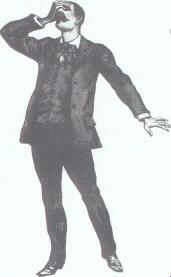
45

Document 13
The Phonographic World, January 1897, Vol. 12: 5, p. 156
Originally printed in the Chicago Tribune
A reprint of a report of meeting of the National Association of Women Stenographers
held on November 10,1896.
|
NATIONAL ASSOCIATION OF WOMEN STENOGRAPHERS
Should the typewriter girl fasten her hair in a Psyche knot, or wear it in one long braid, or in two, are some of the questions which were discussed informally last night by the convention of the National Association of Women Stenographers....
The Association meets in Chicago every three months .... The discussion of questions pertaining to the typewriter girl occupied over an hour before the formal programme was begun. The typewriter girls gathered in groups about the room and the three typewriter men, who had been admitted to help fill out the programme, looked lonesome. The typewriter girls tried to make them feel at home by asking opinions on such questions as 'Should a typewriter girl wear red or black when transcribing a legal brief?' and 'Is it proper for the typewriter girl to bow first when she meets her employer's wife, or should she wait to be bowed to?'
PRETTY TYPEWRITER PREDOMINATES
The pretty typewriter girl predominated at the convention. Some of the sisterhood wore eye-glasses, with black cords attached, that gave to portions of the convention the aspect of a school teachers' institute. A few of the typewriter girls wore steel-bowed spectacles and a frown when some of the younger girls, who evidently had just graduated from business colleges and were anxious for information, giggled. Most of the delegates wore long hair, but a few wore theirs short. There was not a pair of bloomers or short skirt in the convention, and nobody mentioned dress reform.
The best shades of typewriter ribbons was a predominant topic of the informal discussion. It was the opinion of the delegates that the color should in general be governed by the occasion, and whether the ribbons were to be worn by the typewriter girl herself or placed in the machine. For evening wear, when it was a question of dress, it was thought that red or some gay color looked best on the typewriter girl, while black or some dark color best became their machine. No definite conclusion was arrived at, however, and it was thought best to leave the color with the typewriter girl who was to wear the ribbon, and in the case of the machine to let the owner decide the color.
SKILLFUL AS MUSICIANS
The formal programme consisted entirely of instrumental and vocal music. Most of the numbers were given by the typewriter girls themselves, and it was proved conclusively that the keyboard of the piano is but a little way removed from the keyboard of the typewriting machine.
A pretty typewriter girl, with yellow hair, artistically transcribed from the shorthand notes ....
|
46

Document 14
The Phonographic World, May 1888, Vol. 3: 9, p. 197
|
WOMEN'S WORK
'The battle of the sexes ... is a subject which is rarely viewed through the camera of common sense. A working woman is a human machine, practically that is all.... Women are not paid what they rightfully earn because they are no? men, and if a protest is made against the injustice, or a slight increase to the magnificent sum usually paid, is asked for, the request is regarded with the greatest surprise, and met with the reply that for 'a woman' the pay is ample, and, doubtless, the assurance that there are hosts of waiting applicants for similar positions. Sex, not proficiency, is the factor of classification.... If they were paid adequately for their labor, would they be so ready to resign? No. I think the majority of truly earnest, competent women would believe as Hamlet says: 'Better to bear the ills we have than fly to others that we know not of.'...
|
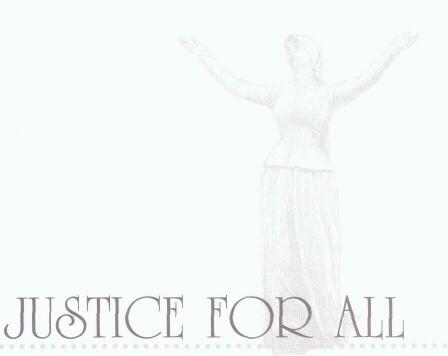
47

Document 15
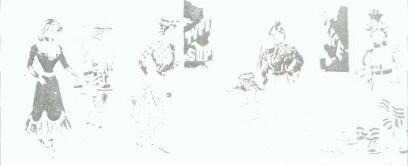
The Phonographic World, September 1900, Vol. 16:1, pp. 14-15.
|
|
THE TYPEWRITER GIRL IN CHICAGO
AS OBSERVED BY AN INTERESTED MALE MEMBER OF THE FRATERNITY
... It is better to accept the typewriter girl (in Chicago and elsewhere) as she would have us believe she is— young, but not too young, and a deal smarter than any other girl.... That is her opinion of herself, as she appears in the picture at the left, when she emerged from school and first entered the business li that the boys are all thinking how charming it is to have her there, ... but when Saturday night comes and she is dismissed, she wonders if... the omissions in her notes and blotches on her letters really did figure in the matter. She is seventeen.
Then ... another girl who has been in the business longer... tells her a thing or two, and the next time we meet her,... she has all the appearance of being twenty-two. She has lengthened her dress several inches.. . . Ribbons and furbelows, frizzes and colors, have all disappeared, and she is now the demure looking maid shown in the next picture. . . .
Then she improves upon herself and soon finds she is making more money than Charlie, the bookkeeper, while Charlie labors twelve hours a day and she only eight. . . . Then she does what all women should do, she gets married—and supports Charlie. She is now the Chicago girl in the third picture. ...
Now we come to the fourth picture. [This] typewriter girl (?) has been left alone in the world. She has made her little 'pile' and owns her own home ... where she keeps two servants,... and a man drives her back and forth to her office, where from morning to night of every day she oversees a dozen or more typewriter girls, of the same species that she was thirty years ago....
Which class do you belong to?
Yours truly, OLIVER SMITH WILLIAMS
|
48

|
GROUP 2 POST-READING QUESTIONS:
1. The writer of Document 14 says that a working woman is a "human machine, practically, that is all." What characteristics of stenographers/typists and machines might the writer be comparing— that is, how might a woman working as a stenographer and typist be like a machine? Re-read paragraph one of Document 7. Does Effie's work give her machine-like qualities? If so, how so?
2. Given our discussion in the above question, do you think that the writer of Document 13 is telling what actually was discussed at the meeting of the National Association of Women Stenographers? What makes the information written about the meeting seem questionable?
3. Do you think the writer of Document 13 could possibly be poking fun at the idea that typists and their machines have like characteristics? Why might the writer engage in that sort of satire— that is, what point(s) might the writer be making?
4. Does the writer of Document 15 seem to be engaging in satire, or is he telling it as he sees it?
5. Is there any way that we can be sure if either writers of Documents 13 or 15 is earnestly telling us the truth as he or she saw it or whether either writer is instead providing satirical humor?
|
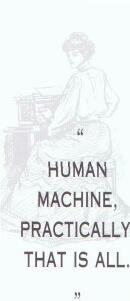
|
49

Use the information from the article and Activity 1 to help you fill in the blocks in the left column. Interview a woman who does "office work" and fill in her answers in the right column. Although the answers require only yes or no answers, ask the interviewee to explain answers when needed. Then write her explanations on a separate sheet.
|
Female Office Workers, 1870-1930
|
Category
|
Female Office Workers Today
| |
|
1. Is "clerical worker" a fitting term to describe the work she does?
|
| |
|
2. Did she have schooling beyond high school to train for her position?
|
| |
|
3. Is she younger than 25 years?
|
| |
|
4. Does she consider office work a life-time career?
|
| |
|
5. Does she expect to get promotions?
|
| |
|
6. Is she racially white?
|
| |
|
7. Is she married?
|
| |
|
8. Does she often feel uncomfortable when alone in public spaces?
|
| |
|
9. If she had a daughter who was interested, would she encourage her to choose clerical work as a career?
|
| |
|
10. If she had a son who was interested, would she encourage him to choose clerical work as a career?
| |
50

|
Pool the class's answers for Activity 2 and fill in the chart below. Then use a spreadsheet to plot the answers and get a visual sense of how much things have changed for women office workers.
• For the 1870 to 1930 column, the class must agree on a percentage for each category. (It is best not to be absolute; for instance, it is likely that most women in clerical work were under 25, but some were likely to be much older. So agree as a class to enter, say, 85 or 90 percent for such categories.)
• Enter only the percentages of "YES" answers for each category on this chart. (Example: If there are 30 students in the class and 30 surveys are completed, then you might have 23 yes answers for category 1, and 7 no answers. Record only the percentage of yes answers— 23/30=77% goes in the right column of category 1.
|
Years 1870-1930
|
Categories
|
Today
|
|
|
Term "clerical worker"
|
|
|
|
Years of schooling
|
|
|
|
Under 25
|
|
|
|
Seeks lifetime career
|
|
|
|
Expects Promotions
|
|
|
|
Racially white
|
|
|
|
Married
|
|
|
|
Uncomfortable alone in public
|
|
|
|
Clerical work for daughter
|
|
|
|
Clerical work for son
|
|
|
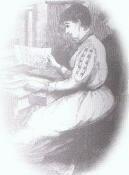
|
51

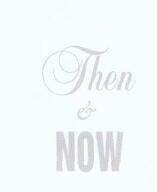
|
Use the Excel Chart Wizard bar graph to make a chart comparing office workers of then and now. If you are unfamiliar with this program, steps to follow are listed below:
|
Step 1 | —Type the title "Years 1870-1930" in cell A1.
| |
Step 2 | —Type the category titles in cells B2 through B11.
| |
Step 3 | —Type "Today" in cell C1.
| |
Step 4 | —Fill in your percentages for each category.
| |
Step 5 | —Highlight all the cells you have used.
| |
Step 6 | —Click on the Chart Wizard symbol on the tool bar; a window will appear that will help you set up your chart.
|
Step 7 | —For "Chart type," choose "Column."
—For "Chart sub-type," choose "Clustered column."
—Click Next.
| |
Step 8 | —Click on the "Series" tab at the top of the window.
—Under the series box, click the "Add" button. If the series name in the box reads "Today," then you will need to add the series title "Years 1870-1930." If the series name in the box reads "Years 1870-1930," then you will need to add the title, "Today."
| |
Step 9 | —In the Series box, click "Years 1870-1930."
—Clear the values box, then type in the following: =Sheet1!$A$2:$A$11
—In the category x axis labels box, type the following: =Sheet1!$B$2:$B$11
| |
Step 10 | —Click on the Series "Today."
—In the Values Column, the values should read as follows: =Sheet1!$C$2:$C$11
|
Step 11 | —Name the chart title something like: A Comparison of Clerical Workers, 1870-1830 and Today. In the box for Category x axis, type the word Categories.
—In the box for Value y axis, type the word Percentages.
—Hit Next.
| |
Step 12 | —Under "Place Chart," choose "New sheet."
—Click "Finish." Discuss the comparisons as a class, referring back to the interviewees' explanations when appropriate.
|
|
52

|
Following is an excerpt from a short story that appeared in The Phonographic World in both the January 1894 (pp. 181-83) and the November 1905 (pp. 267-272) editions. Stories appearing in TPW very often followed the same plot line as the one excerpted below. The journal's October 1905 advertisement calling for short stories for publication noted that the "the introduction of the female element into commercial affairs has given rise to many situations.... Good material may be found in almost any office ... which needs only clever handling to make good literature."
The following story excerpt involves the trials of Mr. Richard Denham as he attempts to propose marriage in a letter offering a partnership to his stenographer/typist Miss Gale. She thinks he must have made a mistake and that he meant the letter for someone else, because the idea of his proposing to her seems too improbable. She thinks his letter to her must have been wrongly addressed.
Document 16
The Typewriter and Phonographic World, November 1905, Vol. 26: 5, pp. 271-272.
|
THE TYPEWRITTEN LETTER
A DIFFICULT BIT OF DICTATION
FROM "THE FACE AND THE MASK," BY ROBERT BARR.
... The next day Miss Gale came late, and she looked frightened. It was evident that Denham was losing his mind. She put the letter down before him and said:
"You addressed that to me the second time, Mr. Denham."
There was a look of haggard anxiety about Denham that gave color to her suspicions. He felt that it was now or never.
"Then why don't you answer it, Miss Gale?" he said, gruffly.
She backed away from him.
"Answer it?" she repeated, faintly.
"Certainly. If I got a letter twice, I would answer it."
"What do you mean?" she cried, with her hand on the door-knob.
"Exactly what the letter says. I want you for my partner. I want to marry you ...."
"Oh !" cried Miss Gale, in a long-drawn, quivering sigh. She was doubtless shocked at the word he had used, and fled to her typewriting room, closing the door behind her.
... He put on his hat and went out into the street. After a long and aimless walk, he found himself again at his place of business. When he went in, Rogers said to him:
"Miss Gale has left, sir."
"Has she?"
"Yes, and she has given notice. She says she is not coming back, sir."
"Very well."
He went into his own room and found a letter marked "personal" on his desk. He tore it open, and read in neatly typewritten characters: "I have resigned my place as typewriter girl, having been offered a better situation. I am offered a partnership in the house of Richard Denham. I have decided to accept the position ...."
|
|

|
53

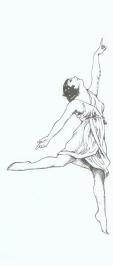
|
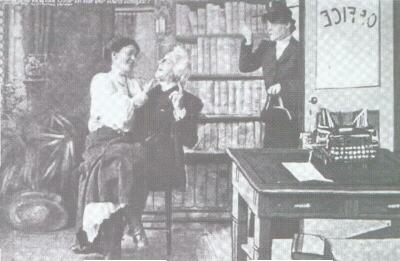
"There will be a hot time in the old town tonight!" The female worker is portrayed in this 1907 postcard as an attractive young woman who flirts with and seduces the men in her office. (J. Murray Jordon Publishers, Philadelphia; Courtesy of Lisa Fine)
Document 17
GROUP 3 POST-READING QUESTIONS:
1. In what ways are Miss Gale in the fictional story of Document 16 and the woman seated on the man's lap in the postcard alike?
2. In what ways are Miss Gale and the postcard's office girl different?
3. What is the story of Document 16 telling its readers about the characteristics of office girls? Do you think the story is reinforcing a stereotype? If so, what might that be?
4. What is the postcard of Document 17 telling its readers about the characteristics of office girls? Do you think the postcard image is reinforcing a stereotype? If so, what might that be?
5. Read again the last paragraph of Document 7. What do you think Mr. Oliver meant by his "pertinent" question to Effie? According to Effie, who are the flirts in her office?
|
54

|
1. Is "clerical worker" a fitting term for someone who works in an office setting today? Why or why not?
2. Do you think there are good reasons to have older women guide and mentor younger women in the workplace? What might they be, if any?
3. Isabel Wallace was a "young, single, white, native-born woman," as were most of the female office workers. Are there certain positions today that suit women of a certain age, marital status, race, or nationality better than other groups?
4. Women in Effie Jones's day were thought to be more naturally suited for typing because they were thought to have been more adept at skills requiring use of the hands, such as piano. Do you think that females are more suited than males for some types of jobs? Why or why not?
5. The article says that "promotional opportunities, better pay, and respect" were not considered important for clerical positions once women had come to hold the majority of those positions. In addition, "the skills necessary for office work, facility with the language, stenography, typing, organizational and personal skills, became devalued" as females took such jobs. Why might it have been that clerical skills were thought to be less valuable once clerical positions were dominated by women?
6. The article says that women who took office positions initiated "a transformation of urban spaces in cities like Chicago." In our own time, should our use of public spaces change to accommodate "new" groups? Give examples.
7. What sort of gender stereotypes have been brought out in our study of women clerical workers in Chicago in the late-nineteenth and early-twentieth centuries? Do some of the stereotypes still exist today to some degree?
8. Why do you think that such stereotypes exist—that is, what might be the reasons that people stereotype according to gender?
9. Now share your group's answers to these questions with the rest of the class. Do you see instances of biased thinking in any of the other groups' answers?
10. What can we do to stop gender bias?
|
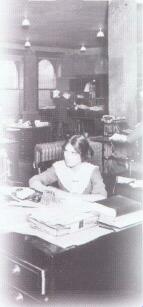
|
55

|
|
Imagine that you are a young woman like Effie Jones or Isabel Wallace at the end of the nineteenth century. You have just moved from your rural residence to Chicago where you are now employed as a stenographer/typist. Write a letter home to your parents or guardians explaining what your job is like, the office environment, what you do for recreation, and how you like your work. Remember that you are living in a time of different social rules and different ideas about social interaction between the sexes. Make it evident to the reader of your letter that you understand the cultural limitations put on your behavior. Date your letter. The contents of your letter should show how much you know and understand about women office workers of 1870 to 1930.
|

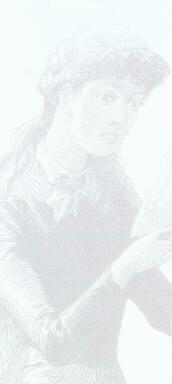
|
|
56
|

